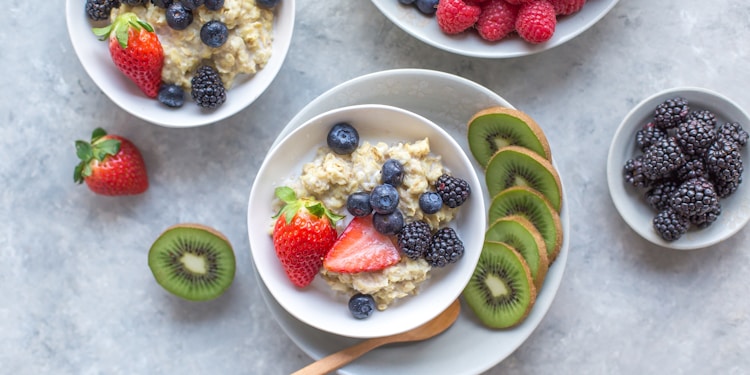Nowadays, people are too busy to take care of their health. Engagement in material affairs has led people to careless lifestyles. Today’s topic is all about eating habits and fiber deficiency in the body. You will also find how it leads to serious health problems and chronic diseases.
Fiber is a necessary nutrient in our everyday life. Even on HealthCanal, it is said that the digestion problem is the root of all diseases. Fiber strengthens the digestive system. Dietary fiber freshens the body and improves the absorption quality of the intestines. Fiber also reduces the risk of some chronic diseases like constipation and colon cancer.
This topic will show you 7 major problems that occur due to fiber insufficiency in the human body.
7 Major Health Problems Due to Fiber Deficiency
The following health problems can be seen due to lack of enough fiber in day-to-day life.
●Constipation
Lack of fiber in the body may result in constipation. There are two kinds of dietary fiber. One is soluble fiber, and the other is insoluble fiber. Both are necessary to our body, especially the insoluble ones which are found in vegetables. These fibers make the stool soft and give a normal yet smooth bowel system. Insufficient fiber may irritate the intestines and rectum, and diseases like hemorrhoids and fistula can develop.
●Weight Gain
Taking enough rich fiber foods gives the feeling of satiety. It allows someone to control their eating habits. Thus, it doesn’t let someone eat all the time. Eating 25 to 30 grams of fiber daily fulfills the needs of fiber.
●Fluctuations of Blood Sugar Level
Fiber insufficiency can reduce the blood sugar level. Diabetic people should be more cautious and must consult a doctor if they cannot find blood sugar levels. More often, it happens due to low fiber intake. Fiber lingers the process of sugar absorption. In this way, it maintains the blood sugar level.
●Diarrhea
Although lack of fiber does not cause diarrhea directly, fiber deficiency makes the immune system weak. The human body cannot digest insoluble fiber. Thus, it reaches into the guts where good bacteria eat them. But not taking enough fiber reduces the number of good bacteria from entrails. It seems to be a chain reaction. But that’s true. So, the takeaway is that fiber makes the immune system of the body strong.
●High Cholesterol and Heart Attack
Studies show that low fiber intake gradually increases bad cholesterol and weakens the cardiovascular system. Sufficiency of fiber increases good cholesterol. It also improves other important activities of the body, like kidney function and energy efficiency.
●Colon Cancer
Fiber deficiency disturbs bowel movement. The stool gets hard and cannot pass. As a result, irregular stool release and wounds in the colon are seen. In later stages, those wounded areas may develop lumps which may transform into cancer.
●Type 2 Diabetes
The low fiber in the diet may lead to a sudden increase in blood sugar which doubles the risk of facing type 2 diabetes. According to studies, people with a low fiber diet carry the risk of developing diabetes more than those with high fiber.
There are other symptoms too. One may face problems like tiredness, too much sleep, blurred vision, etc.
What are the Best Sources of Fiber?
According to the Academy of Nutrition and Dietetics, one must take 14 grams of fiber per 1000 calories. It means a woman needs 25 grams of fiber daily, whereas a man needs 35 grams of fiber. The following foods can be a great choice to fulfill your daily fiber needs.
- Pear is one of the great choices for fiber. A medium-sized pear contains 5.5 grams of fiber.
- Avocado is a rich fiber fruit. One cup of raw avocado contains 10 grams of fiber. It also contains vitamin c, vitamin e, vitamin b, and some minerals like potassium and magnesium.
- An apple keeps a doctor away. Apple has a lot of fiber. A 100 grams of apple has 2.4 grams of fiber.
- Bananas are full of fiber. Eating two medium-sized bananas can give 6 grams of fiber. Bananas are also good for those who have constipation.
- Lentils are a rich source of fiber. One can get 13 grams of fiber per 100 grams of lentils.
- Chickpeas are the most regular for many people. It contains a lot of fiber. A 100 grams of chickpeas has 12 grams of fiber.
Fruits and vegetables are rich sources of fiber. Putting them in our daily meal will
fill the deficiency of fiber.
Daily fiber supplements
Fiber supplements are a type of useful dietary fibre that comes in a capsule or tablet form.
Fiber supplements are commonly used to assist maintain the digestive system’s health, promote weight loss, and cure or avoid specific diseases and ailments.
It is also recently detailed by Lindsey Desoto, RDN, LD. in her article that a daily intake of fiber supplement can improve the following:
- Energy
- Mental clarity
- Sleep
- Digestion
- Skin
- Hair
- Nails
Conclusion
To sum up, the takeaway of this article is that fiber is a necessary diet in our daily life. It keeps us healthy and active. Fiber deficiency may result in various health issues, and the most common is constipation.
The only way to defend these criticalities is to take fiber-based foods as much as possible. Those who are busy can also take fiber supplements. Balance of Nature is one of these popular supplements available in the market. The reviews of the product is more than 4.5 out of 5, which is quite strong.
















